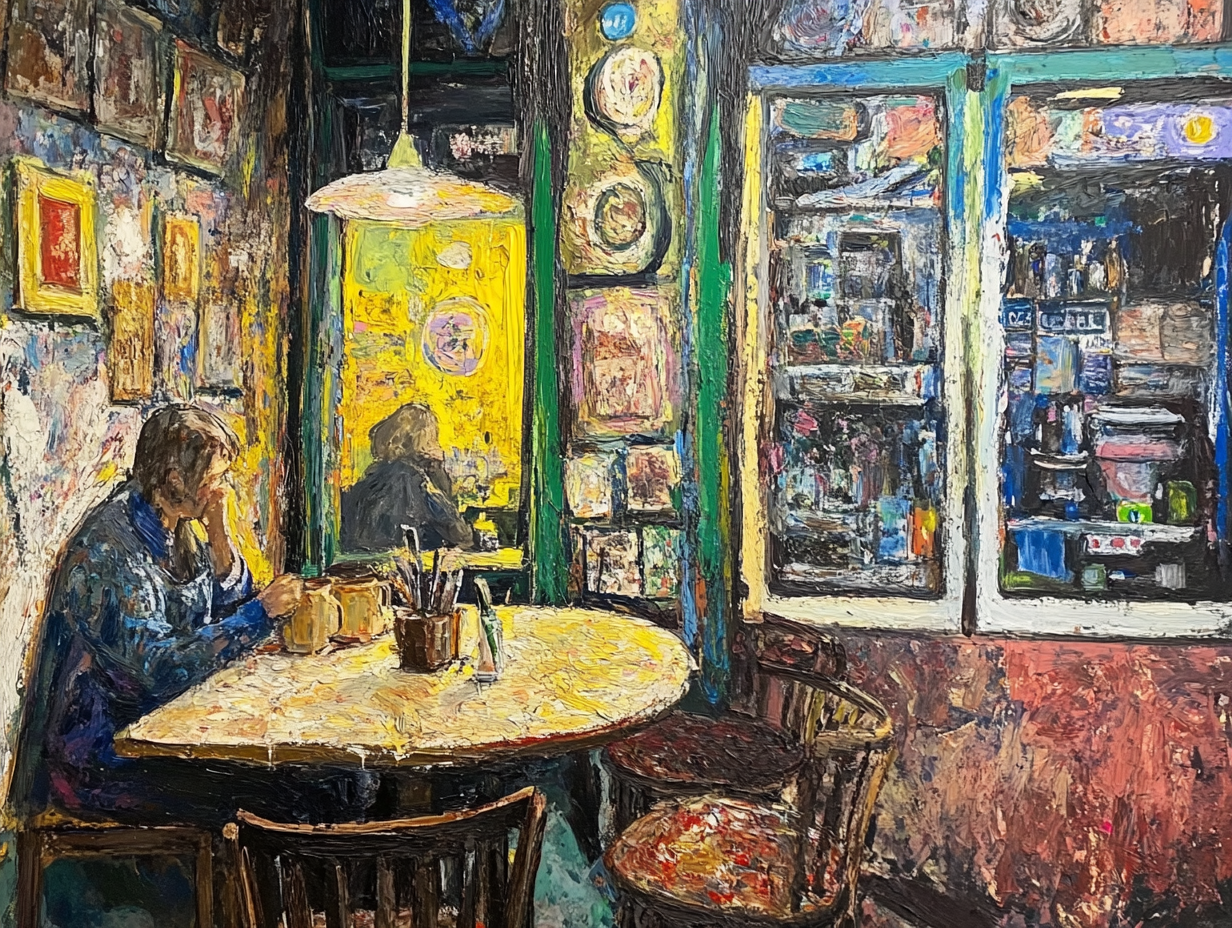
“カフェ難民”を英語で言うと?「カフェ難民の英語表現」
カフェ文化が根付く現代社会において、新たな社会現象を表す「カフェ難民(Café Refugee)」という言葉が注目を集めている。この現象を表す英語表現やイディオムを見ていくと、現代都市の課題が浮き彫りになる▼都心部のカフェで席が見つからない状況を英語では「café hopping」と表現することがある。これは本来「複数のカフェを巡る」という意味だが、近年では「席を求めてカフェを転々とする」というニュアンスでも使われる▼関連するイディオムには「coffee shop nomad」という表現もある。デジタルノマドならぬ、カフェを渡り歩く現代の遊牧民を指す。また、長時間カフェに居座る人を「coffee camper」と呼ぶこともある▼興味深いのは「coffee klatch」という表現だ。これはドイツ語由来で、もともと「コーヒーを飲みながらおしゃべりする社交の場」を意味した。しかし皮肉にも、現代では「そんな居場所すら見つけられない」状況が生まれている▼最近では「You look like you could use a coffee」(コーヒーが必要そうだね)という慣用句も、「休める場所が見つからないね」という意味で使われることもある▼カフェ難民問題は、単なる店舗の混雑以上に、都市部における「サードプレイス」の不足という深刻な課題を示している。英語圏でも「café crisis」という表現で、この社会現象への懸念が示されている。

【英語訳】
“English Expressions for ‘Café Refugees'”
In modern society where café culture has taken root, the term “Café Refugee” has been gaining attention as a phrase describing a new social phenomenon. Looking at English expressions and idioms that describe this phenomenon reveals challenges faced by modern urban societies.
In English, the situation of being unable to find seats in urban cafés is sometimes expressed as “café hopping.” While this traditionally meant “visiting multiple cafés,” it has recently come to include the nuance of “moving from café to café in search of available seats.”
Related expressions include “coffee shop nomad” – a play on “digital nomad” – referring to modern-day nomads wandering between cafés. People who occupy café seats for extended periods are sometimes called “coffee campers.”
Interestingly, there’s the term “coffee klatch” (from German), which traditionally meant “a social gathering for coffee and conversation.” Ironically, in modern times, people often can’t even find such places to socialize.
Recently, the phrase “You look like you could use a coffee” has sometimes taken on the additional meaning of “you look like you need a place to rest.”
The café refugee issue points to a serious urban challenge beyond mere café overcrowding – the shortage of “third places” in urban areas. In English-speaking regions, the term “café crisis” is used to express concern about this social phenomenon.







